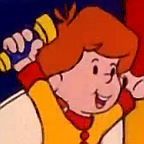A modern tragedy
At some point in the past, when conglomerates did not yet exist on the internet and the primary mode of investigating the web was following links from blogs without knowing where you would end up, I stumbled across a site where people could tell short stories anonymously. Called Postcards from Nowhere, or Messages to No-one or somesuch, it was a sort of online confessional, where people told the kind of truths they couldn’t tell in person.
Among them, I found a set of words that has stuck with me for close to two decades. I think it’s the saddest thing I’ve ever read. The exact wording is lost to hazy memory, but a faithful representation is:
I took heroin to prove to my brother that it wasn’t worth dying for, only to discover, to my horror and delight, that it was.
I don’t know the provenance of this story. I don’t know if it’s a fragment from a larger piece. I don’t know who wrote it. I don’t even know whether or not it’s real. As fiction, it is an exquisite tragedy, Shakespearean in its portrayal of a fundamentally good person whose fatal flaw destroys them. As reality, it is heartbreaking beyond words. Either way, it is profound and catastrophic, and stunning in its brevity.
So much is said in so few words. I imagine the sister — I don’t know if the author is a woman, though it has always felt that way to me — crying and pleading and cajoling and shouting at her brother over months and years to try and save his life, seeing what it is doing to him and his family. Then finally in frustration making a fatal attempt to appeal to logic and reason. I see the arrogance of her assumption that she is somehow smarter, that she won’t succumb in the same way, and that by sheer force of will she may demonstrate her brother’s folly.
I took heroin to prove to my brother that it wasn’t worth dying for, only to discover, to my horror and delight, that it was.
And then I hear the terror in her voice when she collided with reality. The “Oh, fuck” moment when she had enough control to see the path she was starting out on, but not enough to avoid taking the next step. And that terror tinged with an unexplainable joy, seemingly revelling in the destruction to come. Knowing what ultimately awaited her, but enthralled nonetheless.
And with so few words, so much unsaid too. I wonder about the people involved. What happened to her? Did she survive? Did she have a partner and children of her own, and what did this do to them? What of the brother? How did he feel watching his sister embark upon the same journey? Guilt? Vindication? Relief? Misery does love company after all. Perhaps they successfully battled their demons together. Or perhaps, in a cruel irony, he saw her descent and found the strength to climb out, but was unable to help her back up. I think about the parents, and how stressful it must have been to see one child struggle, only for it to become so much worse. How must they have felt when they learned of this?
And then I think about the real opioid epidemic in America, and how many times tragedies like this — different in the details, but similar in the destruction — play out in families across the country, and around the world.
I took heroin to prove to my brother that it wasn’t worth dying for, only to discover, to my horror and delight, that it was.
I reflect on these words from time to time when they come to me as memories occasionally do, unbidden and apropos of nothing. And I think of my own arrogance, and how I have often thought I might bend the world to my desires. I have seen the effects of opioid withdrawal firsthand. How lucky I am, I think, that I read this cautionary tale. Otherwise, might I too have presumed I was strong enough to save someone by proving their load wasn’t so heavy?
